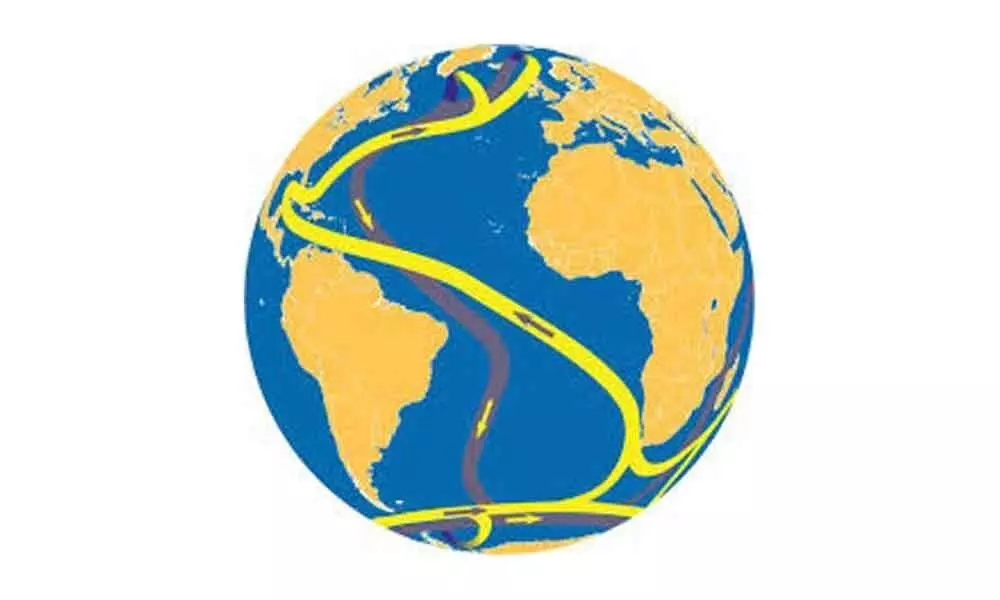Live
- BJP to Review By-election Losses in State Meet
- Activist Alleges CPCB Cover-up on Endosulfan in Kasaragod
- Theft Case of Thumbe Mahalingeshwara Temple
- DIY vs professional car detailing: Pros and Cons
- Wild Elephant Gets Stuck at Rail Track Fence Forest Department Frees Animal
- CERT-In Issues Critical Security Alert for Apple Users: Update Your Devices Now
- Kolar’s Compassionate Leap: Mechanical Elephant Leads Temple Procession
- Centre to unveil startups under new National Quantum Mission guidelines
- Women’s protest rally in Imphal against re-imposition of AFSPA in 6 police station areas
- Greater Nicobar Island project has all environmental clearances: Govt
Just In
North Atlantic Current may change in next century


The North Atlantic Current - which transports warm water from the Gulf of Mexico towards Europe - may see a temporary change in the current in the next 100 years, according to a study.
The North Atlantic Current - which transports warm water from the Gulf of Mexico towards Europe - may see a temporary change in the current in the next 100 years, according to a study.
Scientists suspect that meltwater from Greenland and excessive rainfall could interfere with this ocean current which provides much of north-western Europe with a relatively mild climate. Simulations by scientists from the University of Groningen and Utrecht University in the Netherlands showed that it is unlikely that the current will come to a complete stop, due to small and rapid changes in precipitation over the North Atlantic.
However, there is a 15 per cent likelihood that there will be a temporary change in the current in the next 100 years, according to the study published in the journal Scientific Reports. "The oceans store an immense amount of energy and the ocean currents have a strong effect on the Earth's climate," said Fred Wubs, Associate Professor at the University of Groningen. Ocean scientists have found that the Atlantic Ocean currents are sensitive to the amount of fresh water at the surface.
Since the run-off of meltwater from Greenland has increased due to climate change, as has rainfall over the ocean, it has been suggested that this may slow down or even reverse the North Atlantic Current, blocking the transport of heat to Europe, the researchers said. Simulations of the effects of freshwater on the currents have already been performed for some decades. "Both high-resolution models, based on the equations describing fluid flows, and highly simplified box models have been used," Wubs said. "Our colleagues in Utrecht created a box model that describes present-day large-scale processes in the ocean rather well," he said. The idea was to use this box model to estimate the likelihood of small fluctuations in freshwater input causing a temporary slowing down or a total collapse of the North Atlantic Current, the researchers said.
The current shows non-linear behaviour, which means that small changes can have large effects, they said. The evolution of the physics described by the box model can only be obtained using simulations. "As the transitions we were looking for are expected to be rare events, you need a huge number of simulations to estimate the chance of them happening," said Wubs. However, the scientists found that a French scientist had devised a method to select the most promising simulations, reducing the number of full simulations required. "These simulations showed that the chances of a total collapse of the North Atlantic Current within the next thousand years are negligible," said Wubs. A temporary interruption in the delivery of relatively warm water to north-western Europe is more likely, the researchers said.

© 2024 Hyderabad Media House Limited/The Hans India. All rights reserved. Powered by hocalwire.com






